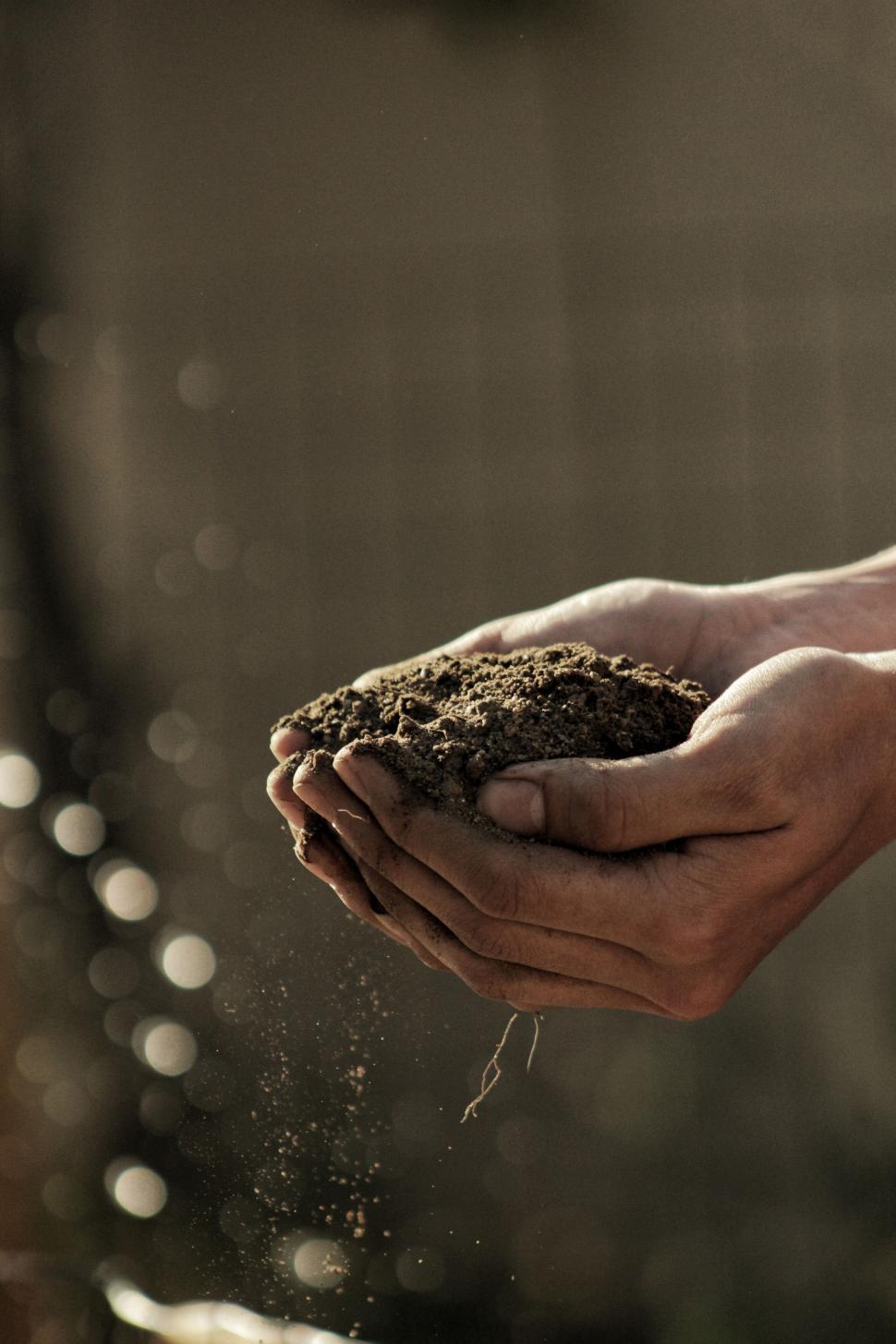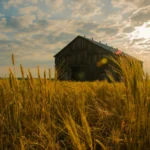The Lord’s Prayer makes us pray for the most extraordinary diversity of things—subjects that would scarcely have crossed our minds to bring before the throne of the Almighty—epitomized by that short, pithy petition: “Give us this day our daily bread.” You may not have realised, but in uttering this request you are praying for good weather at harvest time, for wheat seeds to germinate in the ground, and for earthworms to do their unseen but essential work deep in the soil. The Lord’s Prayer is a resolutely agrarian prayer.
Although not beyond the realms of possibility in God’s dealing with mankind—ravens did, after all, flock to the aid of Elijah to serve him bread straight from heaven, and the Israelites were sustained in the wilderness on that most mysterious bread-like substance manna—it is highly unlikely that in answering this petition God is going to materialise bread out of thin air to satisfy our hunger. No, His normal means of answering our most necessary daily petition is to bless and strengthen the work of the farmers who labour daily out in their fields, growing the wheat, rye, barley, and spelt that are eventually turned into the daily bread that nourishes us.
So in praying for our daily bread we are, indirectly at least, praying for farmers. They are God’s ordained means of providing us with our daily bread. But we mustn’t stop at the farmers. As any good farmer will be at pains to tell you, their labour provides only part of the effort needed for their grains to grow. The other part is mainly occupied by fickle and temperamental weather conditions far beyond their direct control. Then there is also the army of unseen and underappreciated workers: earthworms, soil microbes, and pollinators, whose labour no farmer could be without. These uncontrollable biotic and climatic factors are the subjects of the farmers’ prayers and petitions; and they are keen for us to join in with them in this work of agricultural prayer. They are providing us with our daily bread after all.
It was Martin Luther, a man no stranger to the mundane, base things of life, who first made me aware of the full scope of what praying for our daily bread entails. He astutely notes in his Larger Catechism that “When you say and ask for daily bread, you ask for everything that is necessary in order to have and enjoy daily bread…. You must therefore expand and extend your thoughts to include not just the oven or the flour bin, but also the broad fields and the whole land that produce and provide our daily bread. For if God did not cause grain to grow and did not bless it and preserve it in the field, we could never have a loaf of bread to take from the oven or set up on the table.”
Consider the fields! Consider the soil! Consider the earthworms! This is what Luther is entreating us to do. He is imploring us to consider these agrarian concerns as the worthy subjects for our petitions, not to denigrate or forget them as irrelevant and unworthy of our attention in prayer.
Soil really is the stuff of life. It is the substrate from which we have our origins, the source of our ongoing sustenance, and the place to which we will one day return. Without the soil and the creatures that call its dark and unseen realms home, we would cease to be.
Soil really is the stuff of life. It is the substrate from which we have our origins, the source of our ongoing sustenance, and the place to which we will one day return. Without the soil and the creatures that call its dark and unseen realms home, we would cease to be. These agrarian concerns are far from mundane or base; they are existential concerns for humanity. If something is existential, then woe be us if we neglect to pray for it.
We instinctively pray for our own health and the peace and security of the communities and countries in which we dwell. This is good. We are told to pray for such things. But when did we last pray for the health of our soil and its creatures? The health of our soils is just as important as the security and health of our communities (in fact, one could very well argue that healthy soil is necessary for healthy communities), yet we tend to forget the soil and take it for granted. Perhaps we assume we will always have enough of it. Perhaps we are ignorant as to its health or otherwise. Or perhaps we have slipped into the modern prejudice that anything to do with the dirty soil is unworthy of enlightened modern man’s attention: we certainly have no need to dwell or think upon it, let alone pray for it! But that would be deeply mistaken. We all rely on soil and its creatures; their health is in a very real sense our health. What’s more, agrarians have been warning for centuries of the perilous state of our soils. The recent return to dust bowl conditions in the American Midwest are a stark reminder of this and thus of our need for prayer.
But if, like me, you cannot remember the last time you prayed for the soil, the earthworms, and the health of the land, fret not; your Heavenly Father knows you have need for these things before you ask Him. God knows we are apt to forget the seemingly mundane things in life. That is why He has included them in the scope of the prayer He purposefully designed for us; the prayer which covers all our daily needs no matter how big or small.
So if you have ever prayed the Lord’s prayer, then you have prayed for the soil and its earthworms—even if you didn’t intend to. As Luther says, by praying for our daily bread we cannot help but ask “for everything that is necessary in order to have and enjoy daily bread” and that includes the activities of earthworms. And the myriad complex ecological functions of soil microbes, invisible mycorrhizal connections, and cation exchanges—processes we scarcely know about let alone understand. In our prayers, we can leave these unfathomable processes safely in the hands of the true Gardner who knows them inside out—for He made them and designed them. And He is able to do above all that we ask or imagine.
This should not be an excuse to remain in perpetual ignorance about these fundamental processes. As stewards of this earth, we should aim to deepen our understanding of the creatures and their ecological processes we have been given charge to care for and cooperate with. As Luther says, we ought to “expand our thoughts.” Not all of us of course are called to do this at a professional level, but as a whole, mankind should endeavour to know more about soil ecology and geochemistry so that we can better care for our soils and, perhaps more importantly, pray more intelligently for them.
Who knows how many harvests throughout history have been sustained by saints praying for their daily bread? Who knows how many farmers have been supported by children uttering this most simple but far from simplistic prayer by their bedside? The Lord knows. And He knows too that the Lord’s Prayer is just what this world, its soil, and its creatures need.
So, my fellow agrarian, let us enter diligently into this work of prayer.
Image via Freerange







